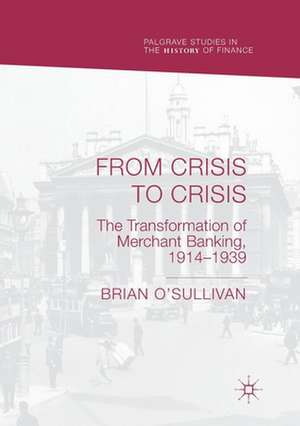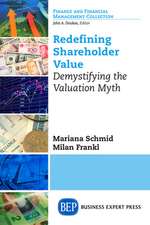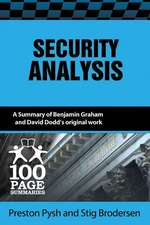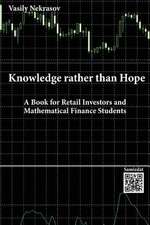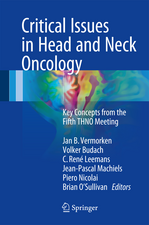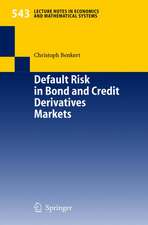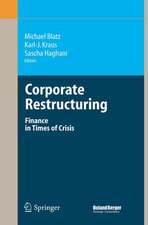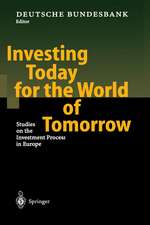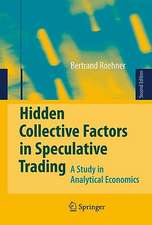From Crisis to Crisis: The Transformation of Merchant Banking, 1914–1939
Autor Brian O'Sullivanen Limba Engleză Paperback – 11 ian 2020
During the late nineteenth century, Britain’s merchant banks had become pre-eminent in a world of fixed exchange rates, free trade and the unfettered mobility of international capital. This world was increasingly challenged in the interwar period, being replaced by floating exchange rates, trade protectionism and restrictions on capital movements.
This book fills a gap in the historiography of British banking by recovering the histories of long-forgotten merchant banks rather than focusing on the better-known firms. Using a wide range of archival resources, it traces the strategic transformation by some merchant banks from higher-risk, capital intensive activities to lower-risk, advisory services.
Brian
O’Sullivan
has
been
jointly
awarded
the
2019
BAC
Wadsworth
Prize
for From
Crisis
to
Crisis:
The
Transformation
of
Merchant
Banking
1914-1939.It was
judged
by
the
Business
Archives
Council
(BAC)
to
have
made
an
outstanding
contribution
to
the
study
of
British
business
history.
Brian
shared
the
prize
with
Professor
Priya
Satia
of
Stanford
University
in
California.
| Toate formatele și edițiile | Preț | Express |
|---|---|---|
| Paperback (1) | 530.75 lei 6-8 săpt. | |
| Springer – 11 ian 2020 | 530.75 lei 6-8 săpt. | |
| Hardback (1) | 712.22 lei 6-8 săpt. | |
| Springer International Publishing – 29 dec 2018 | 712.22 lei 6-8 săpt. |
Preț: 530.75 lei
Preț vechi: 624.41 lei
-15% Nou
Puncte Express: 796
Preț estimativ în valută:
101.55€ • 106.04$ • 83.86£
101.55€ • 106.04$ • 83.86£
Carte tipărită la comandă
Livrare economică 15-29 aprilie
Preluare comenzi: 021 569.72.76
Specificații
ISBN-13: 9783030405106
ISBN-10: 3030405109
Dimensiuni: 155 x 235 mm
Greutate: 0.51 kg
Ediția:1st ed. 2018
Editura: Springer
Colecția Palgrave Macmillan
Locul publicării:Cham, Switzerland
ISBN-10: 3030405109
Dimensiuni: 155 x 235 mm
Greutate: 0.51 kg
Ediția:1st ed. 2018
Editura: Springer
Colecția Palgrave Macmillan
Locul publicării:Cham, Switzerland
Cuprins
Chapter
1.
Introduction.-
Chapter
2.
End
of
the
Golden
Age.-
Chapter
3.
Thunderbolt
from
a
Clear
Sky.-
Chapter
4.
Favourable
Treatment.-
Chapter
5.
Traditional
Preserves.-
Chapter
6.
Unsound
Practices.-
Chapter
7.
Road
to
Crisis.-
Chapter
8.
Domestic
Finance.-
Chapter
9.
Insular
Capitalism.-
Chapter
10.
Mercantile
Roots.-
Chapter
11.
Endgame.-
Chapter
12.
Conclusion.
Notă biografică
Brian
O’Sullivan is
a
Visiting
Research
Fellow
at
King’s
College,
London,
UK.
He
completed
his
PhD
in
2015
at
Birkbeck
College,
London,
UK.
He
has
spent
most
of
his
career
in
the
asset
management
industry,
including
time
with
two
merchant
banks:
Guinness
Mahon
and
Schroders.
He
is
currently
Chief
Operating
Officer
of
Thomas
Miller
Investment.
Previously
he
was
a
Senior
Vice
President
at
State
Street
Bank.
He
is
a
Fellow
of
the
Institute
of
Chartered
Accountants.
Textul de pe ultima copertă
From
Crisis
to
Crisis examines
the
impact
of the
harsh
conditions
of
the
interwar
economy on
the
British
merchant
banks.
The
financial
crises
of
1914
and
1931
are
assessed
using
primary
sources.
The
competitive
threats,
including
the
rise
of
New
York
as
a
rival
financial
centre,
are
considered.
It
challenges
alleged
special
treatment
and
provides
fresh
perspectives
on
the
interwar
rationalisation
of
industry.
During the late nineteenth century, Britain’s merchant banks had become pre-eminent in a world of fixed exchange rates, free trade and the unfettered mobility of international capital. This world was increasingly challenged in the interwar period, being replaced by floating exchange rates, trade protectionism and restrictions on capital movements.
This book fills a gap in the historiography of British banking by recovering the histories of long-forgotten merchant banks rather than focusing on the better-known firms. Using a wide range of archival resources, it traces the strategic transformation by some merchant banks from higher-risk, capital intensive activities to lower-risk, advisory services.
During the late nineteenth century, Britain’s merchant banks had become pre-eminent in a world of fixed exchange rates, free trade and the unfettered mobility of international capital. This world was increasingly challenged in the interwar period, being replaced by floating exchange rates, trade protectionism and restrictions on capital movements.
This book fills a gap in the historiography of British banking by recovering the histories of long-forgotten merchant banks rather than focusing on the better-known firms. Using a wide range of archival resources, it traces the strategic transformation by some merchant banks from higher-risk, capital intensive activities to lower-risk, advisory services.
Caracteristici
Awarded
the
2019 BAC
Wadsworth
Prize having
made
an
outstanding
contribution
to
the
study
of
British
business
history
Aims
to
uncover
why
so
many
merchant
banks
failed
in
the
interwar
period
and
what
the
survivors
learned
from
the
misfortune
of
their
less
successful
competitors
Identifies
almost
100
merchant
banking
firms
during
this
period
